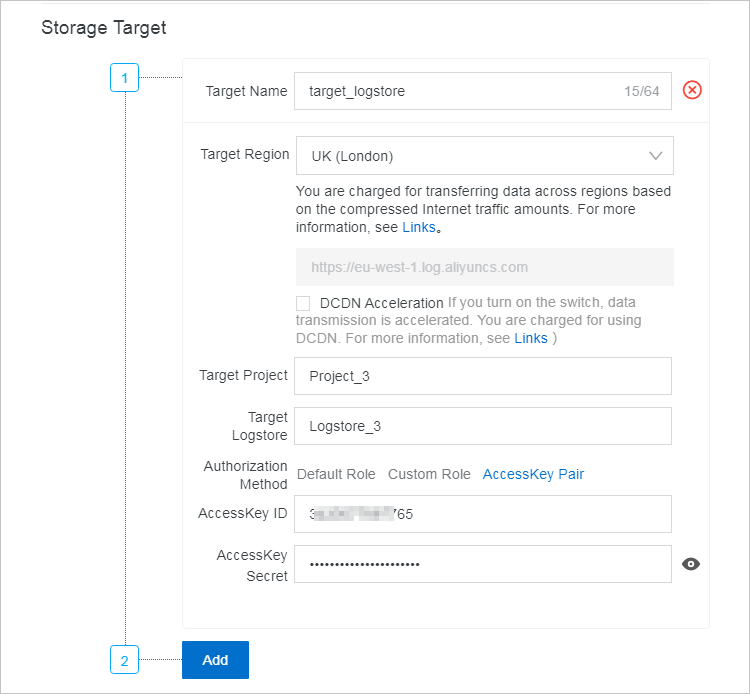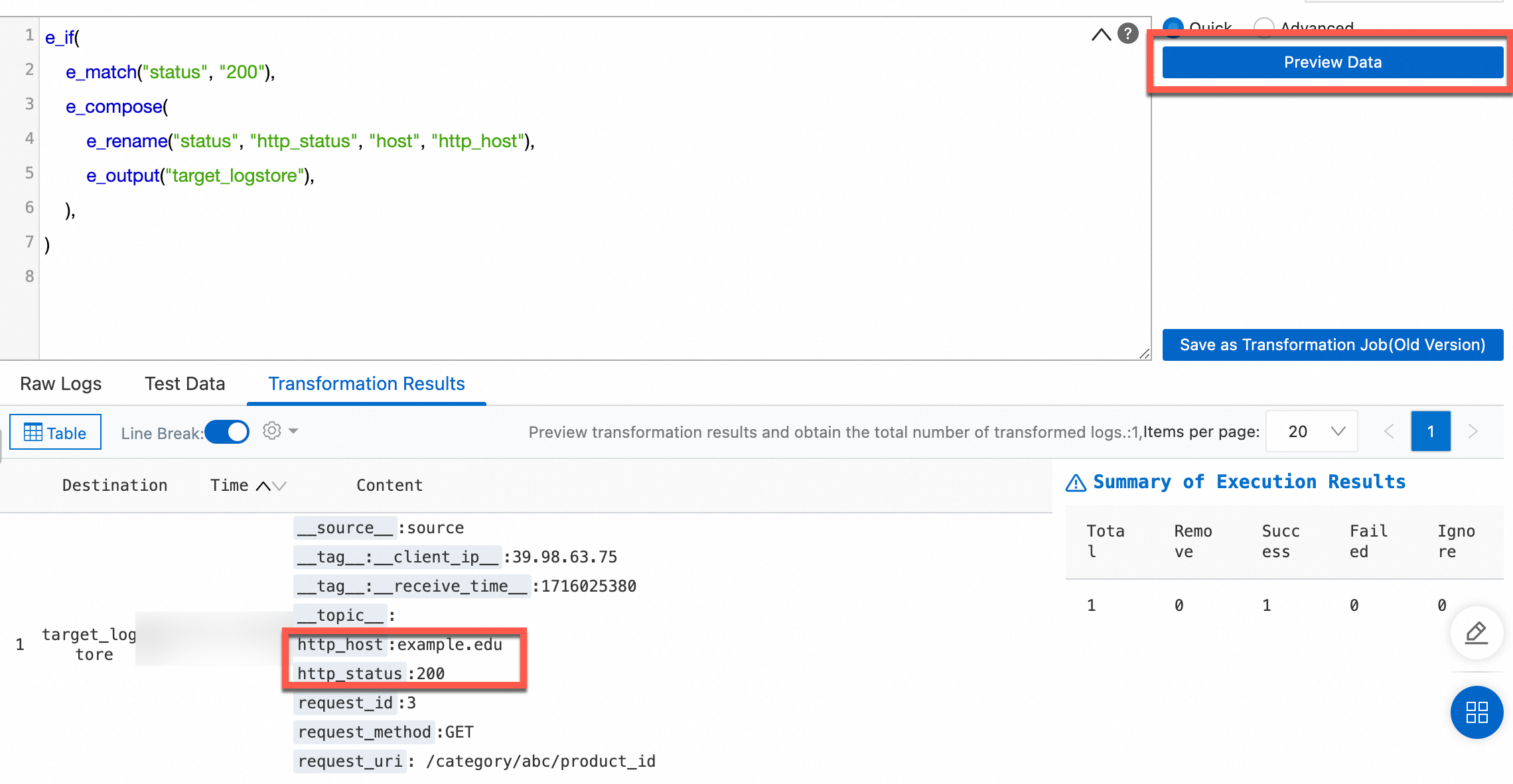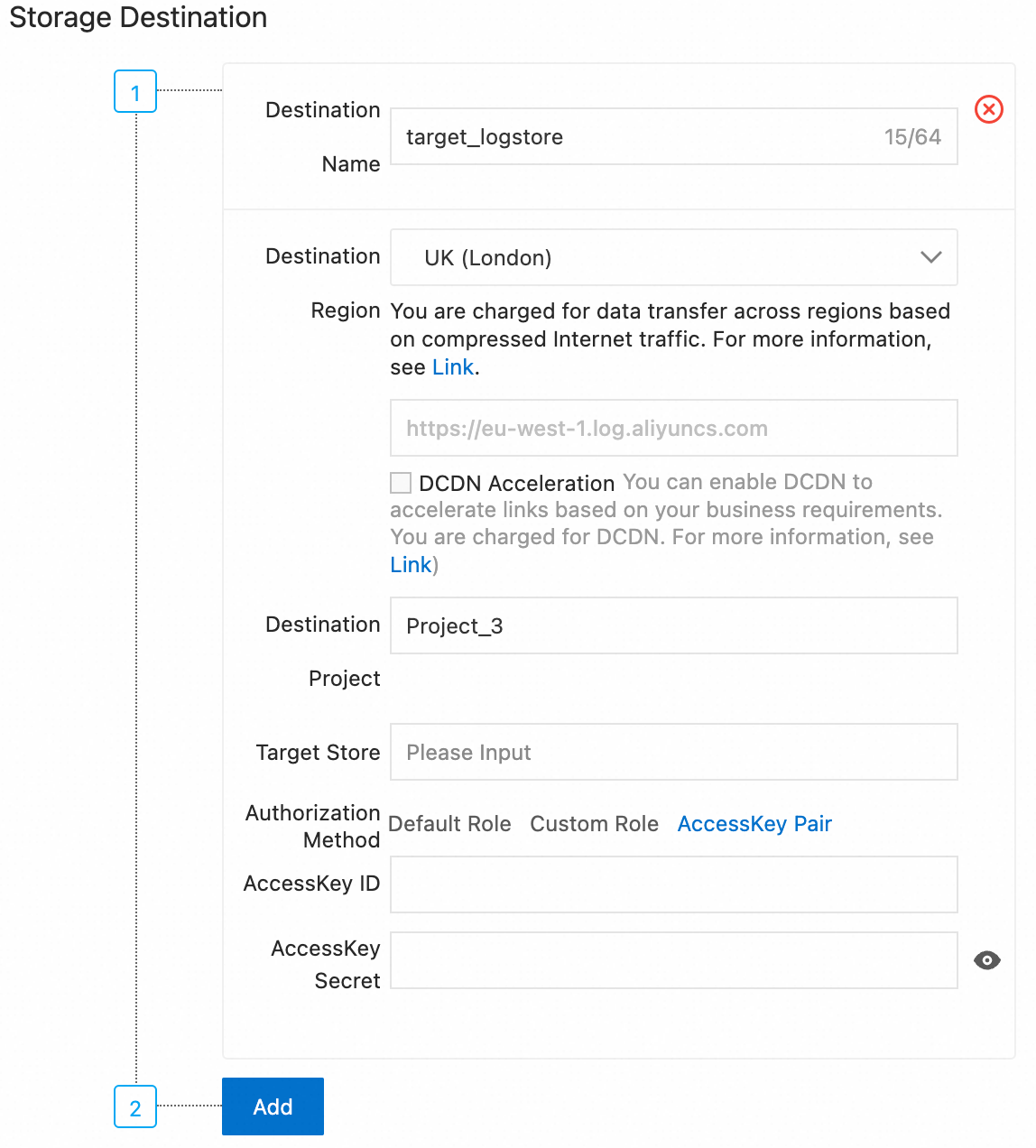Simple Log Service allows you to configure a data transformation job for each Logstore. This way, you can aggregate the logs of multiple source Logstores to one destination Logstore. This topic describes how to aggregate the logs of multiple source Logstores to one destination Logstore and provides common scenarios.
Background information
The services of an information website are distributed around the world. The access logs of users from different information channels are collected and stored in Logstores of different Alibaba Cloud accounts. To aggregate the logs of multiple Logstores to one Logstore for subsequent data query and analysis, you can use the e_output function to transform the logs. For more information, see e_output.
In this topic, the Logstores in the UK (London) region are used to describe how to aggregate the logs of multiple source Logstores to one destination Logstore.
The raw logs in Account 1 are stored in a Logstore named Logstore_1 of a project named Project_1. The project resides in the UK (London) region.
Log 1 request_id: 1 http_host: example.com http_status: 200 request_method: GET request_uri: /pic/icon.jpg Log 2 request_id: 2 http_host: aliyundoc.com http_status: 301 request_method: POST request_uri: /data/data.phpThe raw logs in Account 2 are stored in a Logstore named Logstore_2 of a project named Project_2. The project resides in the UK (London) region.
Log 1 request_id: 3 host: example.edu status: 404 request_method: GET request_uri: /category/abc/product_id Log 2 request_id: 4 host: example.net status: 200 request_method: GET request_uri: /data/index.htmlTransformation requirements
Export logs whose
http_statusis200in Logstore_1 of Account 1 to Logstore_3 of Account 3.Export logs whose
http_statusis200in Logstore_2 of Account 2 to Logstore_3 of Account 3. Before you export the logs, renamehosttohttp_hostandstatustohttp_statusto keep consistency with the field names in Logstore_1.
Step 1: Configure a data transformation rule for Logstore_1
Go to the data transformation page of Logstore_1 in Account 1. For more information about how to go to the page in the Simple Log Service console, see Create a data transformation job.
On the data transformation page, configure the following data transformation rule. Export logs whose
http_statusis200in Logstore_1 of Account 1 to Logstore_3 of Account 3.e_if(e_match("http_status", "200"), e_output("target_logstore"))Create a data transformation job. In the Storage Destination section, configure the Destination Name, Destination Region, Destination Project, and Target Store parameters based on the following figure. For more information about the Authorization Method parameter, see Create a data transformation job.

Step 2: Configure a data transformation rule for Logstore_2
Go to the data transformation page of Logstore_2 in Account 2. For more information about how to go to the page in the Simple Log Service console, see Create a data transformation job.
On the data transformation page, configure the following data transformation rule. Export logs whose
http_statusis200in Logstore_2 of Account 2 to Logstore_3 of Account 3. Before you export the logs, renamehosttohttp_hostandstatustohttp_statusto keep consistency with the field names in Logstore_1.e_if(e_match("status", "200"), e_compose(e_rename("status", "http_status", "host", "http_host"), e_output("target_logstore")))Preview results

Create a data transformation job. In the Storage Destination section, configure the Destination Name, Destination Region, Destination Project, and Target Store parameters based on the following figure. For more information about the Authorization Method parameter, see Create a data transformation job.

View aggregation results
Query and analyze logs in Logstore_3 that resides in the UK (London) region. For more information, see Query and analyze logs. Sample logs:
Log 1
request_id: 1
http_host: example.com
http_status: 200
request_method: GET
request_uri: /pic/icon.jpg
Log 2
request_id: 4
http_host: example.net
http_status: 200
request_method: GET
request_uri: /data/index.html